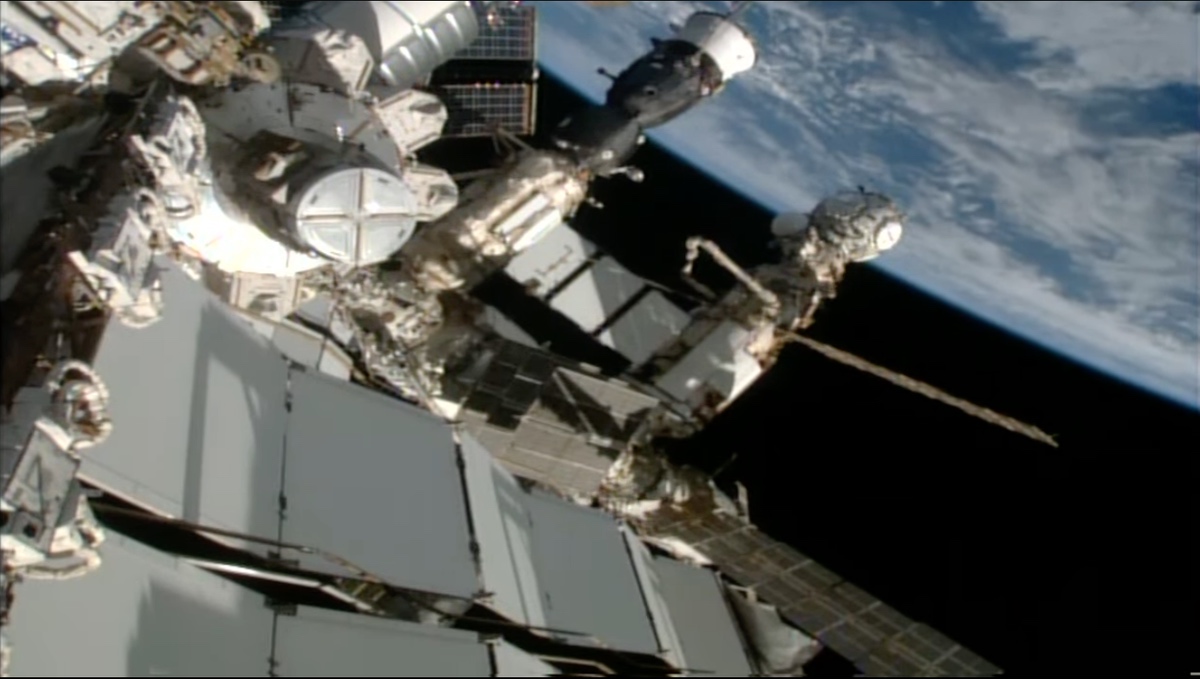A coolant leak into space has been detected on the Russian Nauka module. Problems with one of the backup radiators. This is the third such problem with Russian equipment in space in a year.

Russian module is leaking
On October 9, NASA released a statement according to which a coolant leak occurred on the Russian Nauka module, also known as the Multipurpose Scientific Module. At about 1:00 p.m., the dispatchers of the American Space Agency noticed “flakes” that flew out of it into space.
How long this leak lasts is still unknown. American astronaut Jasmin Moghbeli has already confirmed that there is a leak from the radiator of the Nauka module. Confirmation of this fact was also made public by Roscosmos.
According to this statement, the leak occurred in the backup radiator of the Nauka. It got to the ISS back in 2010 as part of the Rassvet module, and when Nauka was docked to the station in 2021, it was decided to use it on it. The transfer occurred earlier this year during one of the spacewalks.
Third case in a year
The incident with the Nauka module has already become the third such event in less than a year. First, in December 2022, the cooling system on the Soyuz MS-22 spacecraft failed. It had to be replaced by another one, and because of this, the return of three ISS crew members to Earth was delayed for six months.
Then, in February 2023, a coolant leak occurred from the cooling system of the Progress cargo ship, which then seriously burned during landing. Both incidents suggested the existence of serious technical problems. However, American and Russian experts did not find confirmation of this and agreed that the cause was clearly damage by micrometeorite or space debris.
It is unclear whether the leak will affect plans for two spacewalks from the US segment. NASA astronaut Loral O’Hara and ESA astronaut Andreas Mogensen plan to perform one spacewalk on October 12 to carry out maintenance of the station and collect scientific samples, and O’Hara and Moghbeli will carry out another one on October 20 to carry out additional maintenance of the station.
According to spacenews.com
Follow us on Twitter to get the most interesting space news in time
https://twitter.com/ust_magazine
